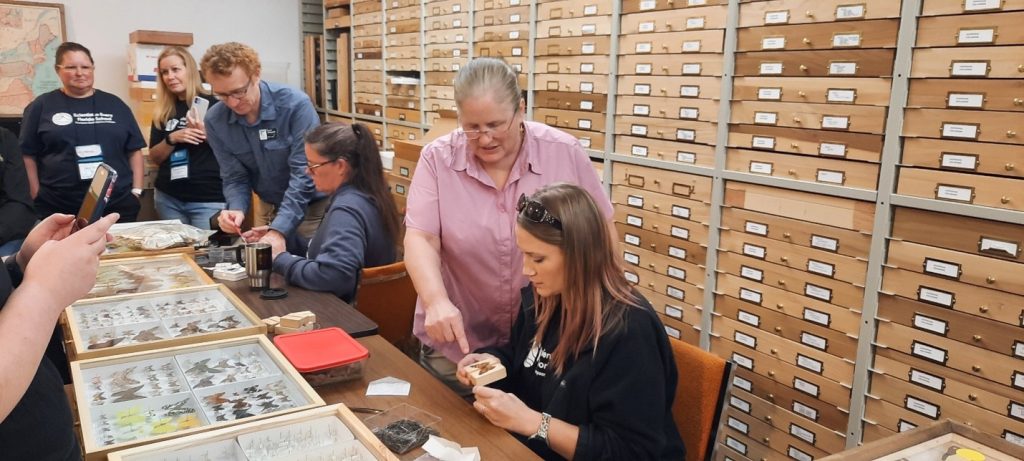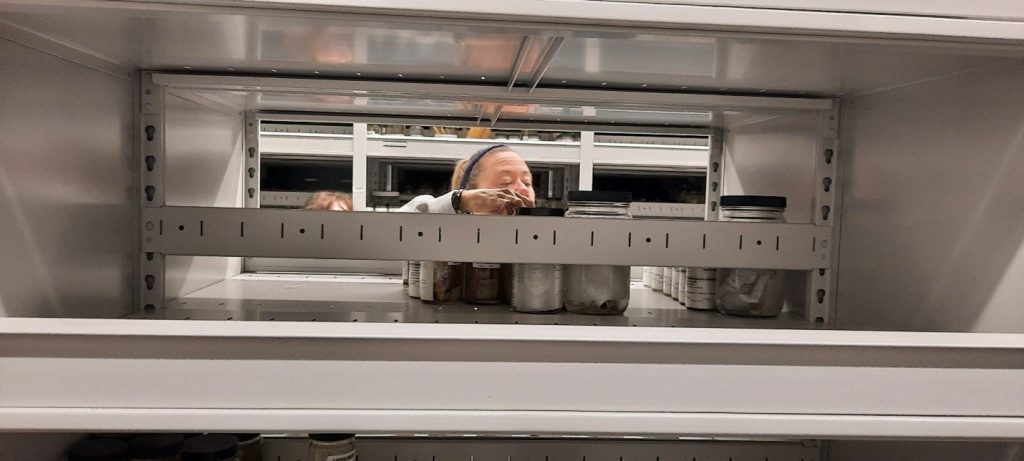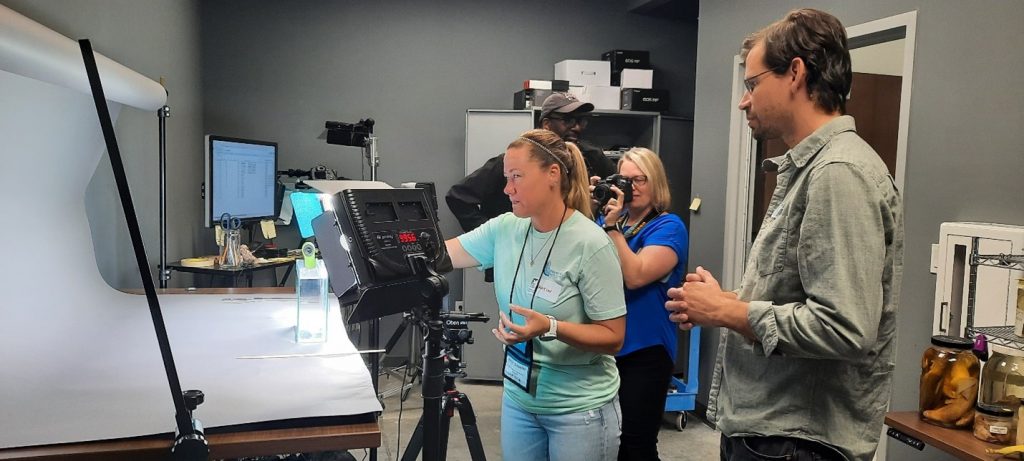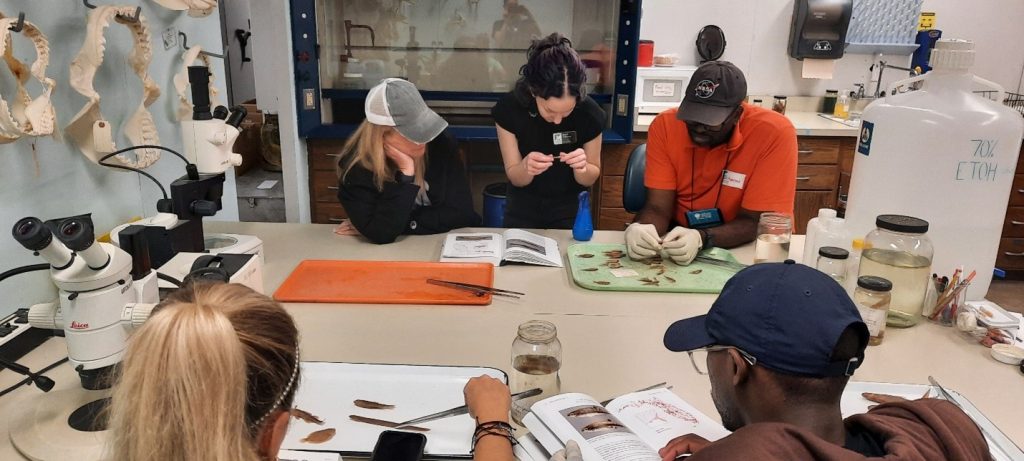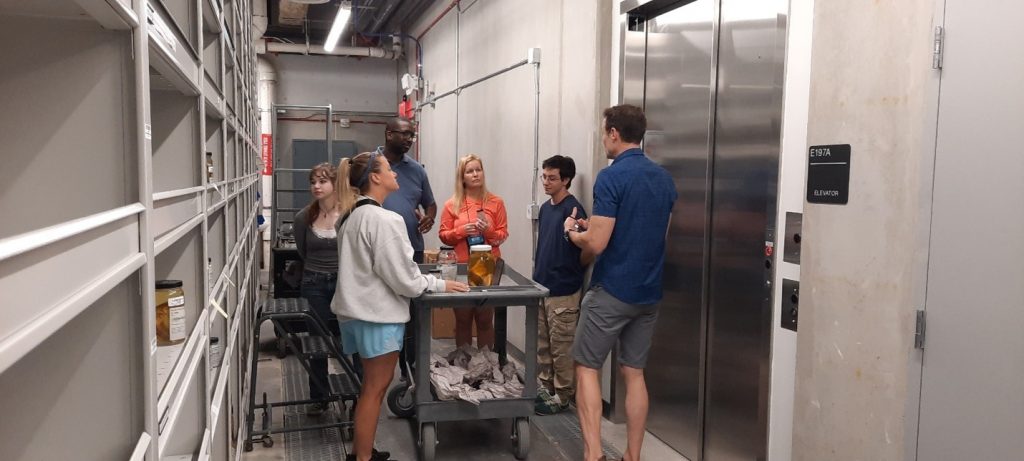“I felt like a VIP, and in my profession, I don’t always get to feel like a VIP,” explained an elementary school science teacher during a focus group when I asked her about her favorite part of the week at the end of a professional development training led by the University of Florida Thompson Earth Systems Institute Scientist in Every Florida School program. Due to generous support from the Wilder Endowment, I had the opportunity to spend a week with this all-star teacher and nine others from throughout Florida in order better understand their interests, motivations, and challenges in developing high-quality science curricula, and how their confidence levels in using museum collections in their classrooms changed throughout the course of the week. Teachers explored the collections, interacted with scientists, and participated in hands-on activities such as identifying fishes, photographing specimens, a scavenger hunt, and even spending an afternoon fishing through the Fishing for Success program.
This teacher professional development training came about as part of the “Moving and Improving the Florida Museum of Natural History Fish Collection” grant funded by the National Science Foundation (Award #2210415). The University of Florida Ichthyology Collection is the second largest of its kind in the country, and the fastest growing, more than doubling the number of specimens in the past 25 years. Moving this many specimens is an enormous undertaking, but a necessary one to improve the longevity of the collection, increase efficiency by implementing a barcoding system, and making collections more accessible to the public by digitizing specimens through photography, photogrammetry, and CT scans to create both 2D and 3D images.
In addition to feeling like VIPs due to their behind-the-scenes access in the museum collections and interactions with researchers, teachers also had the opportunity to be scientists themselves. Throughout the training, the teachers worked alongside researchers to help reorganize collections’ shelves, add barcodes, and digitize specimens. By collecting data on their experiences and perceptions, we learned that by the end of the week, all ten teachers (100%) felt that they had contributed to science. In describing the value of the experience, one teacher shared, “I found that time with real scientists was extremely useful. Their passion and wealth of knowledge is inspiring. Touring real labs, and specimen storage facilities allowed me not only to gain a greater understanding of the importance of museum collections, but I was also able to take photos to share with my students of how different science can look!” When asked via an exit survey if they would recommend this training to a colleague, every teacher responded, “Very Likely.”
Personally, I felt the same way as many of the workshop participants. While I have been a part of the Museum Education Research Group for nearly three years, this was my first time in Gainesville, in-person at the museum. As a distance student in the Master of Fisheries and Aquatic Sciences program, I have been fortunate to be able to conduct research in my home community while still receiving top-notch education. However, between the public-facing displays, the immense behind-the-scenes collections, and the researchers and other staff who were incredibly generous with their time and knowledge, the museum is truly an awe-inspiring place, and nothing could replace this in-person experience.
Melanie Giangreco is a graduate student pursuing a M.Sc. through the School of Forest, Fisheries, and Geomatics Sciences in the College of Agricultural and Life Sciences, advised by Dr. Megan-Ennes, Assistant Curator of Museum Education and Director of the Thompson Earth Systems Institute.
The 2024 Summer Student Travel Awards are supported by the FLMNH Department of Natural History, including funds from the Louis C. and Jane Gapenski Endowed Fellowship and the B.J. and Eve Wilder Endowment. If you would like to help support this fund for future student awards, please go to:
Louis C. and Jane Gapenski Endowed Fellowship
B.J. and Eve Wilder Endowment
